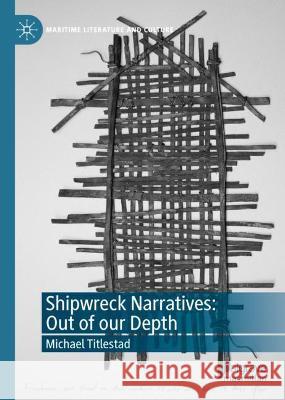Shipwreck Narratives: Out of Our Depth » książka
topmenu
Shipwreck Narratives: Out of Our Depth
ISBN-13: 9783030870409 / Angielski / Twarda / 2021 / 248 str.
Shipwreck Narratives: Out of Our Depth
ISBN-13: 9783030870409 / Angielski / Twarda / 2021 / 248 str.
cena 220,86
(netto: 210,34 VAT: 5%)
Najniższa cena z 30 dni: 212,02
(netto: 210,34 VAT: 5%)
Najniższa cena z 30 dni: 212,02
Termin realizacji zamówienia:
ok. 22 dni roboczych.
ok. 22 dni roboczych.
Darmowa dostawa!
Kategorie:
Wydawca:
Springer Nature Switzerland AG
Seria wydawnicza:
Język:
Angielski
ISBN-13:
9783030870409
Rok wydania:
2021
Ilość stron:
248
Waga:
0.47 kg
Wymiary:
21.01 x 14.81 x 1.75
Oprawa:
Twarda
Wolumenów:
01
Dodatkowe informacje:
Wydanie ilustrowane











